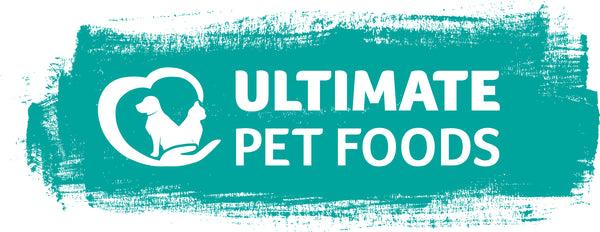Discover Peptide Benefits For Dogs Can Transform Your Dog's Well-Being
Share
 Discover Peptide Benefits For Dogs Can Transform Your Dog's Well-Being
Discover Peptide Benefits For Dogs Can Transform Your Dog's Well-Being
As pet parents, we need to understand the peptide benefits for dogs, we are constantly seeking ways to improve the health and happiness of our furry friends. One of the promising advancements in canine nutrition is peptide benefits for dogs found in food. This type of diet harnesses the power of peptides—short chains of amino acids that offer numerous health benefits. By integrating this nutritional innovation into your dog’s diet, you can promote their well-being and longevity.
Understanding Peptides and Their Role in Peptide Benefits for Dogs
What Are Peptides?
Peptides are short chains of amino acids, which are the building blocks of proteins. In the world of canine nutrition, they play crucial roles in various bodily functions. These tiny molecules are responsible for triggering specific physiological responses, promoting healing, and influencing metabolism. When included in dog food, peptides can provide targeted nutritional benefits to improve your dog’s health.
How Peptides Benefit Dogs
Peptides can contribute significantly to your dog’s overall well-being. They may enhance immune function, support muscle growth, and improve skin and coat health. For instance, specific peptides have been shown to regulate inflammatory responses, which is essential for dogs with conditions like arthritis. Additionally, peptides can aid in the digestive process, helping your dog absorb more nutrients effectively and maintain a healthy gut.
The Health Benefits of Peptide Dog Food
Boosting Immune Function
One of the vital roles that peptides play is in enhancing the immune system. Peptides can stimulate the production of immune cells, helping your dog fend off diseases and infections. A robust immune system is critical for long-term health, especially for ageing dogs or those with pre-existing health conditions. Regular consumption of peptide-rich food can lead to a healthier, more resilient canine companion.
Supporting Digestive Health
Proper digestion is essential for your dog’s health, influencing everything from nutrient absorption to energy levels. Peptides can support digestive health by promoting the growth and maintenance of beneficial gut bacteria. A healthy gut leads to better digestion and can help alleviate issues such as bloating and constipation. Moreover, improved gut health can lead to a shinier coat and healthier skin, as many nutrients are integral to these aspects.
Improving Skin and Coat Quality
For many pet owners, the appearance of their dog’s coat is a concern. Peptide dog food can enhance skin and coat health by encouraging collagen production, which is vital for maintaining skin elasticity. This can reduce issues like dry skin, irritations, and excessive shedding. A healthier coat also means that your dog feels comfortable and looks great, enhancing their overall appearance and confidence.
Considerations When Choosing Peptide Dog Food
Look for Quality Ingredients
Not all dog foods containing peptides are created equal. When selecting peptide dog food, ensure it includes high-quality ingredients. Look for products that list whole meats, wholesome grains, and vegetables as primary components. Avoid foods that contain fillers, artificial additives, or by-products, as these can detract from the benefits of the peptides.
Consulting Your Veterinarian
Before making any significant changes to your dog’s diet, including the introduction of peptide dog food, it’s essential to consult your veterinarian. They can provide insights into your dog’s specific nutritional needs and help you choose the right product. This step is crucial, especially if your dog has allergies or underlying health issues.
How to Transition to Peptide Dog Food
Gradual Transitioning
Transitioning your dog to a new diet should be done gradually to avoid gastrointestinal upset. Start by mixing a small amount of the new peptide dog food with their current diet, gradually increasing the new food while decreasing the old over a week or so. Monitor your dog during this transition to ensure they accept the new food and do not experience any adverse reactions.
Monitoring Health Changes
After transitioning your dog to peptide dog food, observe any changes in their health and behaviour. Look for improvements in energy levels, coat quality, and overall vitality. If you notice any concerning changes, consult your veterinarian. Each dog is unique, and what works for one may not work for another, so keep an open line of communication with your vet throughout this process.
Conclusion: Enhancing Your Dog's Life with Peptide Dog Food
Incorporating peptide dog food into your canine companion’s diet can provide a multitude of benefits that enhance their health and happiness. From boosting immunity to improving coat quality, peptides can be crucial in supporting overall well-being. Invest in your dog’s nutrition by choosing high-quality peptide-based food, and watch as your furry friend thrives.
Next Actions
As loving pet parents, our goal is to ensure the best possible life for our dogs. By prioritizing their nutrition and choosing foods enriched with peptides, we can contribute significantly to their health, longevity, and happiness. Consult with your veterinarian, make the transition smoothly, and watch your dog benefit from this excellent nutritional choice.
Frequently Asked Questions (FAQ)
What are the signs that my dog might need peptide dog food?
If you notice your dog experiencing digestive issues, skin problems, or low energy levels, it may be time to consider peptide dog food. Additionally, older dogs or those with specific health conditions could greatly benefit from this diet.
Are there any side effects to using peptide dog food?
While peptide dog food is generally safe for dogs, some may experience mild digestive upset during the transition. Always monitor your dog's response to the new food and consult your veterinarian if any adverse effects occur.
How often should I feed my dog peptide dog food?
Feeding guidelines vary based on your dog’s size, age, and activity level. Follow the instructions on the packaging and consult your veterinarian for personalised recommendations to ensure your dog receives adequate nutrition.
